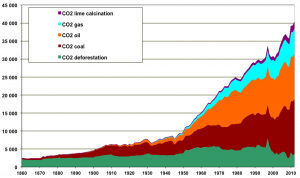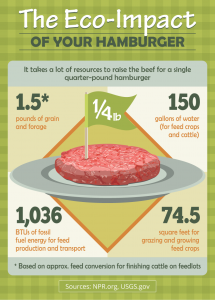In addition to looking at the reports, my students did on geopolitics, a different class built 16 wikis, or hyperlinked web pages, on a number of topics related to environmental sustainability and its link to business strategy. I have been teaching this course for a number of years and am always impressed by the range and depth of the student’s interest.
This year has been no exception and collectively the group did an amazing job of looking at most of the most important aspects of sustainability in business today. I am incredibly proud of their collective achievement.
 My own opinion is that energy and the way we harness, distribute and use it is the key to a large part of the sustainability challenge and a number of my students looked at this issue from a number of angles.
My own opinion is that energy and the way we harness, distribute and use it is the key to a large part of the sustainability challenge and a number of my students looked at this issue from a number of angles.
One group looked at greenhouse gas emissions and discussed their sources and the big ideas that could lower them. Another focused on renewables and their possible evolution to 2050 and 2100. A third went deeply into geothermal energy and showed how relatively simple technology could lower the energy consumption of homes and buildings in many parts of the world. A fourth looked at the role of electromobility and the potential for distributed energy storage thanks to electrifying transportation. A fifth looked at the role of forestry in managing the world’s carbon budget.
Other groups focused on the social side of sustainability with one looking at how Covid-19 has impacted the UN¡s 17 Sustainable Development Goals. A second group spoke about how businesses might choose to go beyond sustainability to becoming truly responsible to civil society as a whole.
In terms of technology, one group looked at smart cities while another looked at the application of Artificial Intelligence to sustainability in general and a third looked at advanced technology as it applied to agriculture.
 The circular economy was the topic of yet another wiki as we need to do something about plastics. I also had a group work on sustainability in the wine business and another on developing tasty and sustainable alternatives to meat as the footprint of a hamburger is unbelievable high.
The circular economy was the topic of yet another wiki as we need to do something about plastics. I also had a group work on sustainability in the wine business and another on developing tasty and sustainable alternatives to meat as the footprint of a hamburger is unbelievable high.
We also had a wiki on food waste which has been a constant over the years and another on water scarcity which was topical because of what happened in cape town last year.
Most of the wikis were fundamentally upbeat speaking about solutions to the world’s problems and how business can and must play a positive role to solve them. The last one was perhaps the most controversial and spoke about the role that lobbying plays in the debate on sustainability.
Here, I am afraid that my students were very critical of business in general. In their view, business often takes the lead in pushing back against environmental legislation and slowing down the world’s progress on addressing climate change, air and water pollution, and other problems.
To quote the CEO of one of the world’s largest plastics companies, sustainability is the biggest business opportunity of our generation. Instead of fighting against it, companies should develop solutions to problems and then lobby the governments of the world to enact legislation in the direction of what they have figured out!
This will give a lasting competitive advantage AND make the world a better place.

